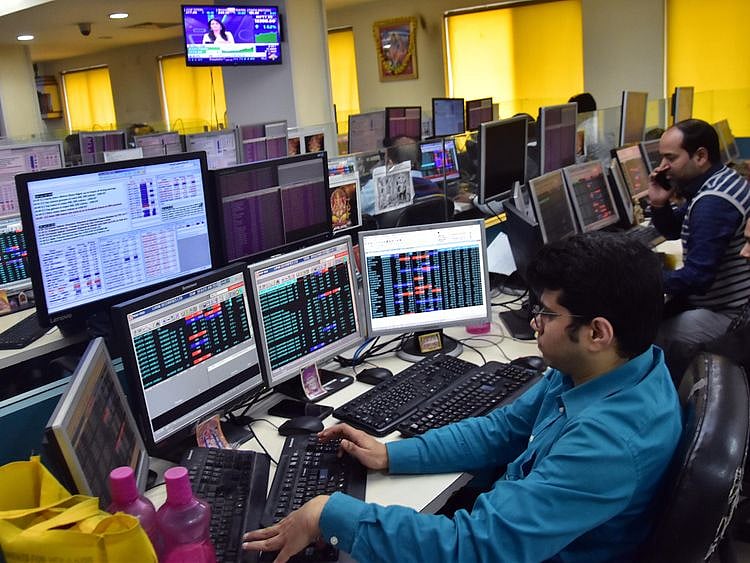Dubai: Indian markets are bracing for a volatile first half as government efforts to revive the economy fell well short of expectations and are largely seen as having limited impact.
More experts have now turned cautious on the road ahead for the stock market — at least in the short-to-medium term — as they expect the economy to slow even further, thereby impacting the corporate earnings amid rich valuations and negative global cues.
This, they feel, could keep markets range-bound and volatile.
“Indian financial assets are at crossroads as steps taken by the government to revive spirits are taking longer than anticipated and the slowdown in the domestic economy becomes more entrenched,” said Aditya Pugalia, Director of Financial Markets Research at Emirates NBD.
“The limited fiscal and monetary space available to policymakers coupled with increasing global risks has raised the odds of a rather volatile first half of 2020 for Indian markets.”
Pugalia said the overarching aim of the budget presented by the government appears to be to revive the private investment cycle, with the government seeking to complement that by continuing to keep public spending robust and by making India an attractive destination for foreign capital.
“However, in our opinion, they fall well short of expectations and are expected to have limited impact,” Pugalia added.
RBI to stay paused?
After having reduced interest rates by 135 basis points over the last twelve months, the Reserve Bank of India (RBI) also kept rates on hold for a second consecutive meeting. The current repo rate of 5.15 per cent is the lowest level since 2010.
“Looking ahead, we expect the RBI to remain on prolonged pause,” Pugalia said, adding that the counter cyclical fiscal measures announced by the government in the budget and some signs of economic recovery should provide the central bank with enough grounds to stay put on monetary policy.
“Notwithstanding the pause in monetary policy easing, the central bank retains an accommodative stance,” Pugalia said. “Having said that, the priority is now balanced between spurring growth and maintaining price stability.”
The latest PMI data for January 2020 has also come in at multi-year highs with Markit manufacturing PMI reading of 55.3 and Markit Services PMI at 55.5, indicating expansion across its various sub-indices of output, new orders, and employment.
“It does appear that simultaneous measures taken by the RBI and government over the past few months are finally starting to bear fruit,” Pugalia said. “However, we believe that it is too early to suggest that growth has bottomed out [and] as global risks continue to remain elevated and that in turn could very well puncture the visible early cycle growth.”
According to the Reserve Bank of India estimates, a 50-basis point change in global growth impacts Indian growth by 20 basis points.
Slowing GDP
Researchers at Standard Chartered have trimmed their Indian GDP growth forecast in a study underpinned by a subdued pick-up in economic activity and limited demand boost in the budget.
The analysts lowered GDP growth forecasts for year ending March 2020 to 5 per cent from 5.3 per cent. The move they said is driven by weaker-than-expected growth momentum in the third quarter and a likely “tepid recovery” in the last quarter, and “limited measures” to boost demand in the budget.
Foreign investors will now look at India in context of the global developments, said Andrew Holland chief executive officer at Avendus Capital Strategies. “There is nothing for them with regards to the Indian economy to get excited about post these budget proposals.”
Foreign investors pumped in over 120 billion rupees in stock markets in January and have remained net buyers of Indian equities for the fifth consecutive month. In the equities segment, the investors invested 252 billion rupees in November and 73 billion rupees in December, data showed.
Sign up for the Daily Briefing
Get the latest news and updates straight to your inbox
Network Links
GN StoreDownload our app
© Al Nisr Publishing LLC 2026. All rights reserved.
